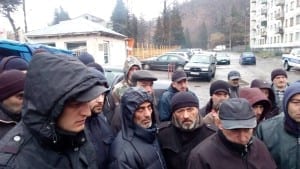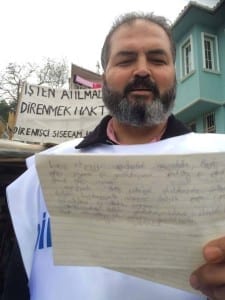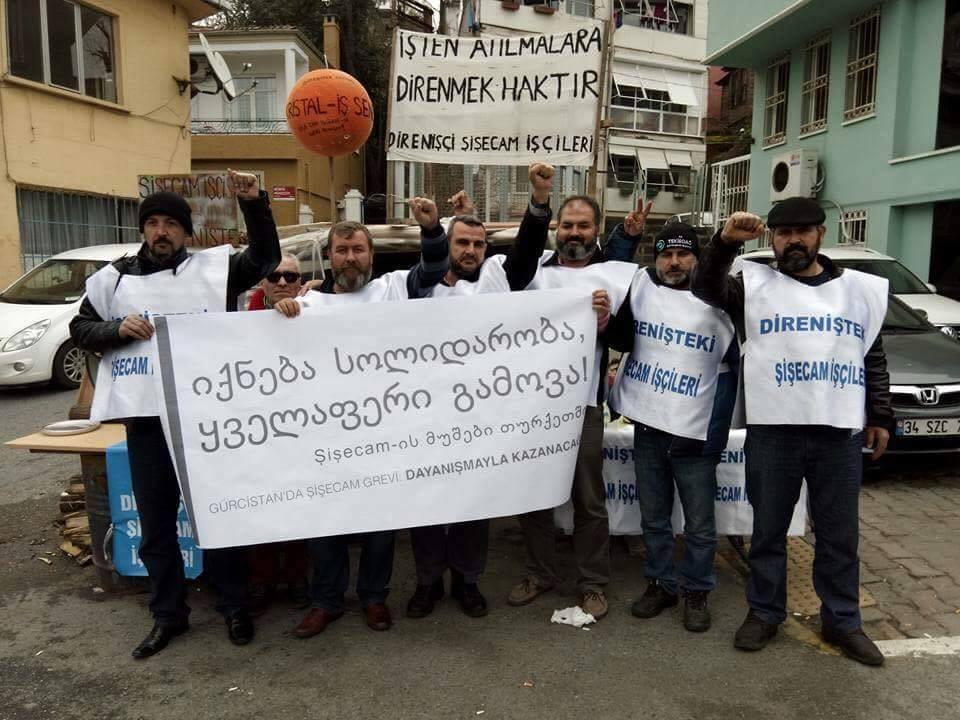In Georgia, coal miners in Tkibuli and glass factory workers in Ksani recently made big gains at the workplace with the assistance of the Metal Workers, Miners and Chemical Industry Workers’ Trade Union (MMCIWTU) and the Georgian Trade Unions Confederation (GTUC).
Despite tough opposition from their employers, both groups of workers waged successful strikes and won significant wage increases, with miners also gaining key job safety and health improvements.

Miners in Georgia won key contract demands, including a wage increase and improved job safety and health. Credit: MMCIWTU
Some 750 miners went on strike in February, seeking wage increases promised during their last strike in 2011. The workers, employed by the Georgian Industrial Group (GIG), which operates two mines in Tkibuli, walked out before notifying union leadership of their intention.
But with GTUC President Irakli Petriashvili and MMCIWTU President Tamazi Dolaberidze at the bargaining table, miners returned to work in 16 days with a new contract that includes a 7 percent pay increase starting March 1 and an additional 3 percent hike beginning April 1—and will be paid for half of the days they spent on the strike with no punishment for strike leaders. The company also has agreed to address salary imbalances.
GIG supplies coal from Tkibuli primarily to cement-producing factories in Georgia and is one of the country’s largest corporations, with operations in energy generation, natural gas and real estate.

JSC Mina factory workers received wide international support for their strike. Credit: MMCIWTU
At the JSC “Mina” glass container factory, 170 workers—80 percent of the workforce—went on strike February 5 after months of contract negotiations which stalled when the company did not address workers’ key issues, including a wage increase.
Throughout the 30-day strike, glass workers won wide international support, with employees of the JSC Mina Turkey-based parent company, Sisecam, holding a solidarity action backing striking workers. The Sisecam workers also sent their Georgian brothers and sisters a message: “Workers of “Mina” are symbol of fight for just cause, wherever human rights are violated we should be there and fight together!”
The global union federation IndustriALL, the Eurasian Metal Workers Federation, the Turkish union DISK and unions in Ukraine, Russia, Belarus, and Kyrgyzstan sent protest letters to the company and support letters to the glass workers. GTUC affiliate organizations and non-governmental organizations also backed the workers.
Petriashvili and Dolaberidze ultimately negotiated a 7.5 percent pay increase beginning January 1, 2017, and the company agreed to the workers’ demand for a location to hold union activities.

